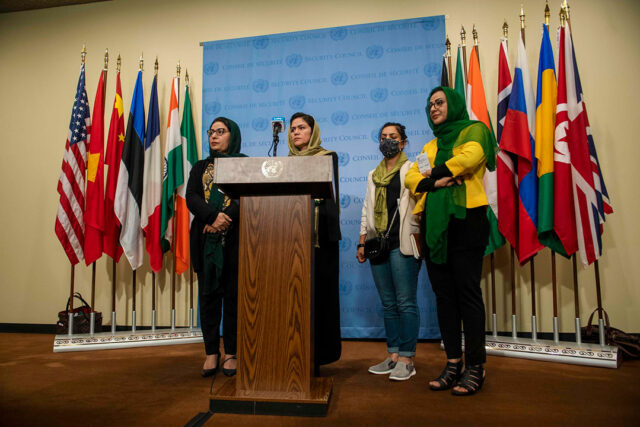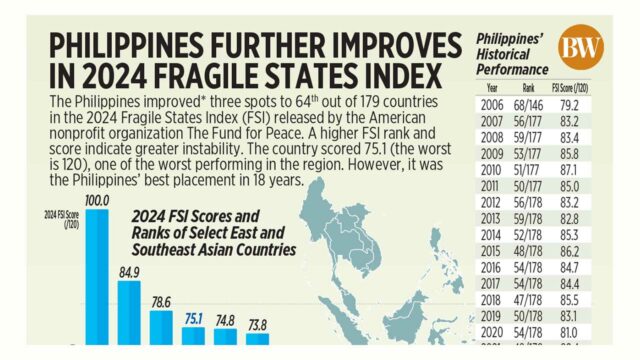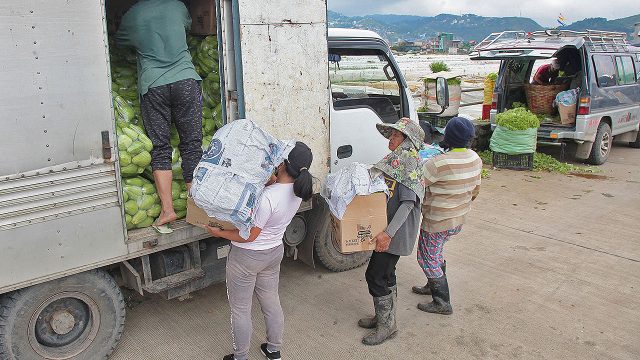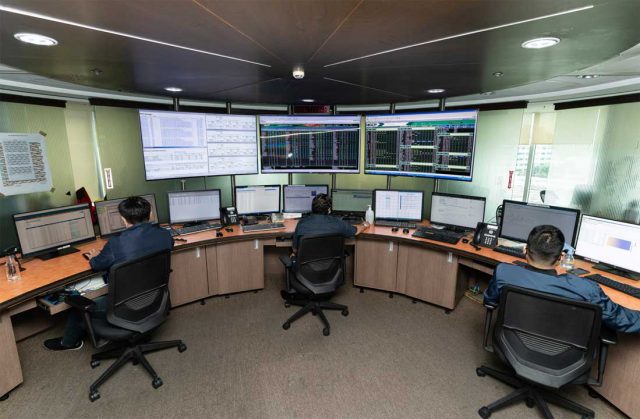IT IS THE ULTIMATE ACT of bad faith. The United Nations (UN) has decided to exclude women from its upcoming global conference on Afghanistan. Why? The Taliban, it seems, insisted on it.
The Islamic fundamentalist group wasn’t invited to the first meeting in May 2023, and refused to attend the next one in February because the UN wouldn’t accept the list of preconditions for its participation. “These conditions first of all denied us the right to talk to other representatives of the Afghan society and demanded a treatment that would, I would say, to a large extent be similar to recognition” of the Taliban as the governing authority, Secretary-General António Guterres said at the time. So what has changed?
It’s unclear what led the UN to agree to the Taliban’s demands for the talks in Doha that begin on June 30, though the global body insists “this sort of engagement is not legitimization or normalization.” I’d call it something else. An egregious breach of trust — one that places security and counterterrorism concerns above the rights of women, girls, and minorities.
As important as the Taliban’s presence at the meeting is — the US and its allies see the Taliban’s battle against the Islamic State-Khorasan group as vital to controlling the threat of terrorism emanating from Central Asia — there were other options beyond surrendering human rights to extremists.
In November, the UN laid out a road map for engagement with the Taliban that required improvements in women’s rights before the UN would consider officially recognizing it as the country’s governing entity. A month later, the Security Council called for Afghan women to be involved in the political process and for the establishment of a special envoy for Afghanistan to coordinate international engagement. It is also considering recommendations to recognize “gender apartheid” as a crime against humanity.
On every aspect, the UN is dragging its feet. There is no special envoy, and no sign of movement on gender apartheid.
Its own Special Rapporteur on the situation of human rights in Afghanistan, Richard Bennett, last week presented a comprehensive set of recommendations for dismantling the Taliban’s institutionalized system of gender oppression. They involve tackling the culture of impunity that has long existed in Afghanistan by punishing crimes committed by the Taliban, its agents and supporters. This can be done via “universal jurisdiction” which enables a state to prosecute perpetrators of the most serious international offenses regardless of where they were committed or the nationality of the perpetrators and the victims.
Bennett’s report makes for grim reading. It documents discrimination, segregation, disrespect for human dignity, and exclusion, motivated by the Taliban’s profound rejection of women and girls’ humanity. They now have increasingly narrow roles: as bearers and rearers of children, and as objects available for exploitation, including debt bondage, domestic servitude, and sexual exploitation. Women and girls are banned from education beyond sixth grade. In March, the Taliban issued an order that women be stoned to death for so-called “moral crimes.”
There are efforts underway to initiate a case at the International Court of Justice, and it is here that the global community could make a difference. It takes just one country that is a signatory to the Convention on the Elimination of All Forms of Discrimination Against Women to step up. Bennett also calls for better funding for a separate investigation by the International Criminal Court into crimes against humanity and war crimes committed in Afghanistan since May 2003. He notes Afghans’ frustration with the lengthy preliminary examination and investigation. (ICJ decisions are subject to enforcement by the Security Council, but each of the five permanent members can veto any decision, while the ICC doesn’t have its own enforcement body. It relies on countries to make arrests, freeze suspects’ assets, and enforce sentences.)
Importantly, Bennett says that nations should “avoid normalization or legitimization of the de facto authorities” until the human-rights situation improves, especially for women and girls. It is hard to understand why another arm of this global body meant to defend and protect human rights would do the opposite of what its own expert is recommending.
It is, as Heather Barr of Human Rights Watch notes, “enraging” that the UN has done this. “There are certain lines they shouldn’t cross,” she told me. “This is one of them.”
Not surprisingly, Afghan women and human-rights defenders are calling for nations to boycott this meeting. That will present a dilemma for many countries, particularly those committed to gender justice and concerned about the rise in terrorist activities that originate in Afghanistan.
Since its inception in 2015, Islamic State-Khorasan — named for the historic region encompassing parts of Afghanistan, Iran, and Central Asia — has expanded its international reach. The attack on a Moscow concert in March that killed more than 140 people, as well as suicide bombings in Iran that claimed 95 lives in January, were both linked to IS-K. Earlier this month, eight people from Tajikistan, some with suspected ties to the Islamic State, were arrested in the US.
But while the Taliban may be attempting to shut down IS-K, it is still uncomfortably close to al-Qaeda — indeed the UN reported in June last year that several al-Qaeda leaders have been given key posts within the regime.
The world cannot afford to offer the Taliban some kind of clemency over its human-rights abuses simply because it is resisting another terrorist group. That is the worst kind of foreign policy. We must abandon the idea, once and for all, that the rights of women and girls are there to be traded off at will. They’re not.
BLOOMBERG OPINION















